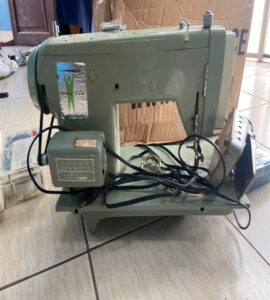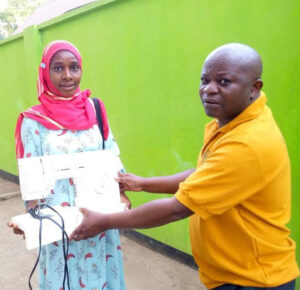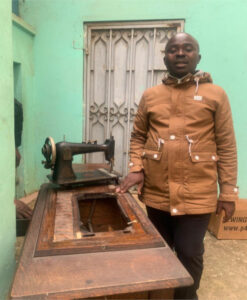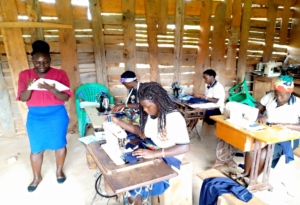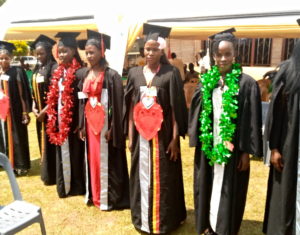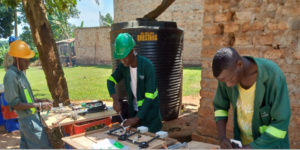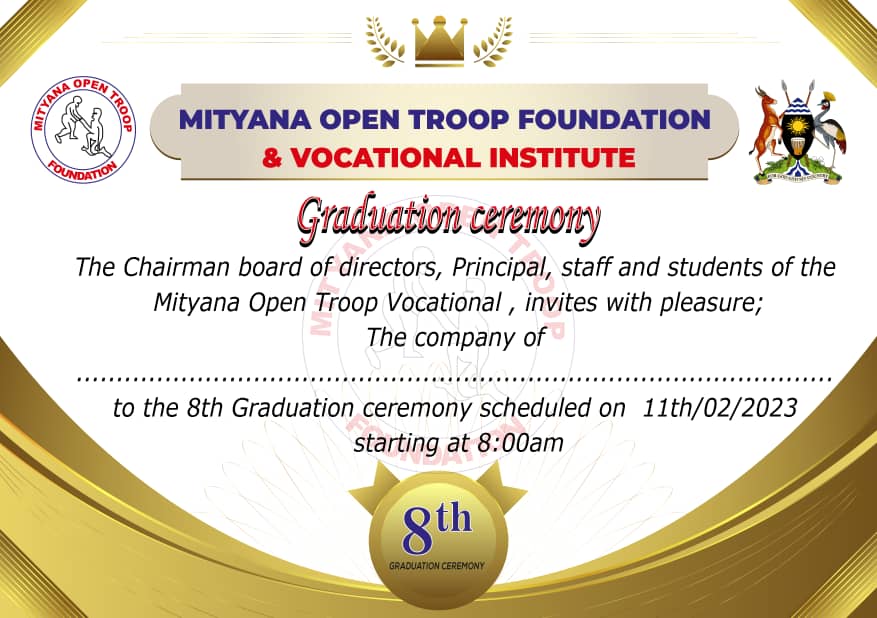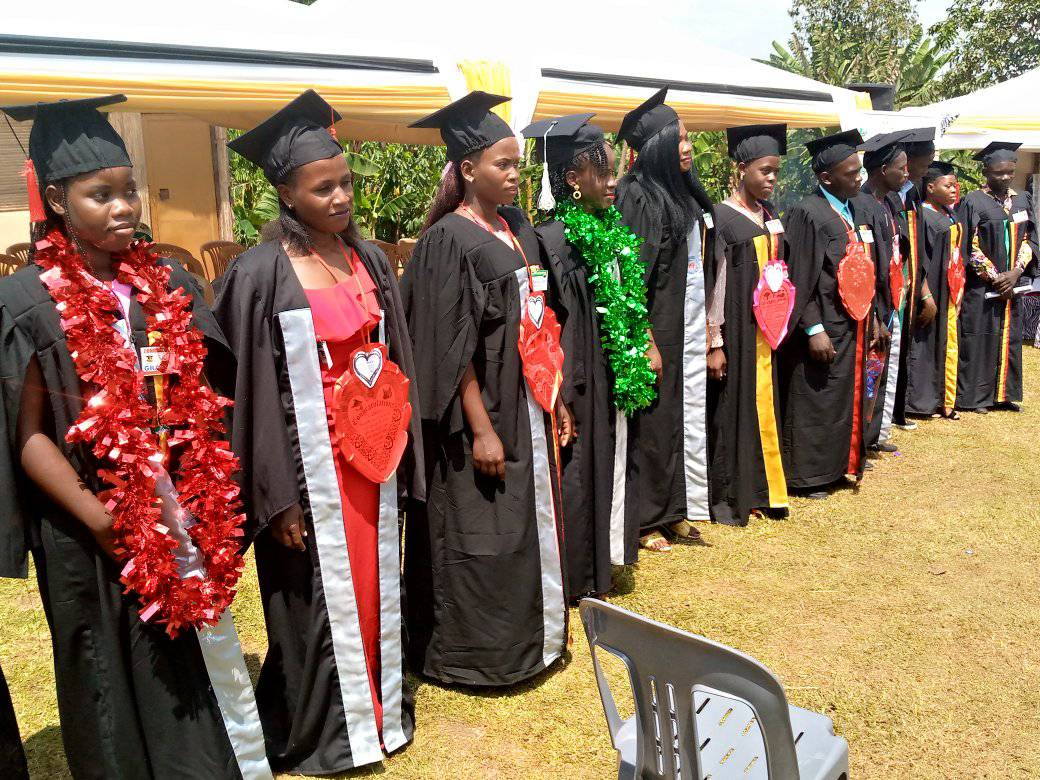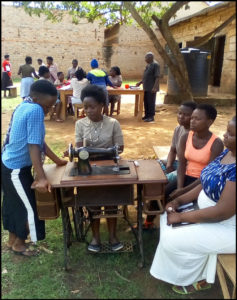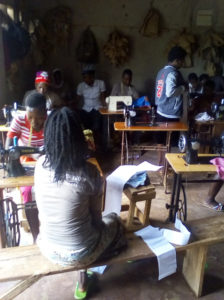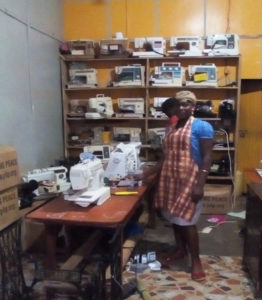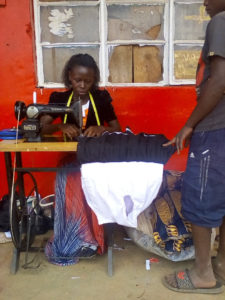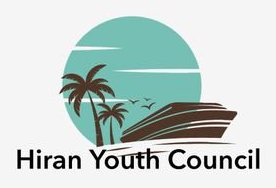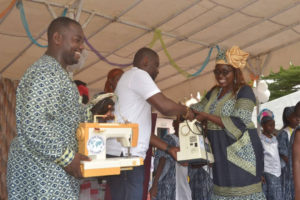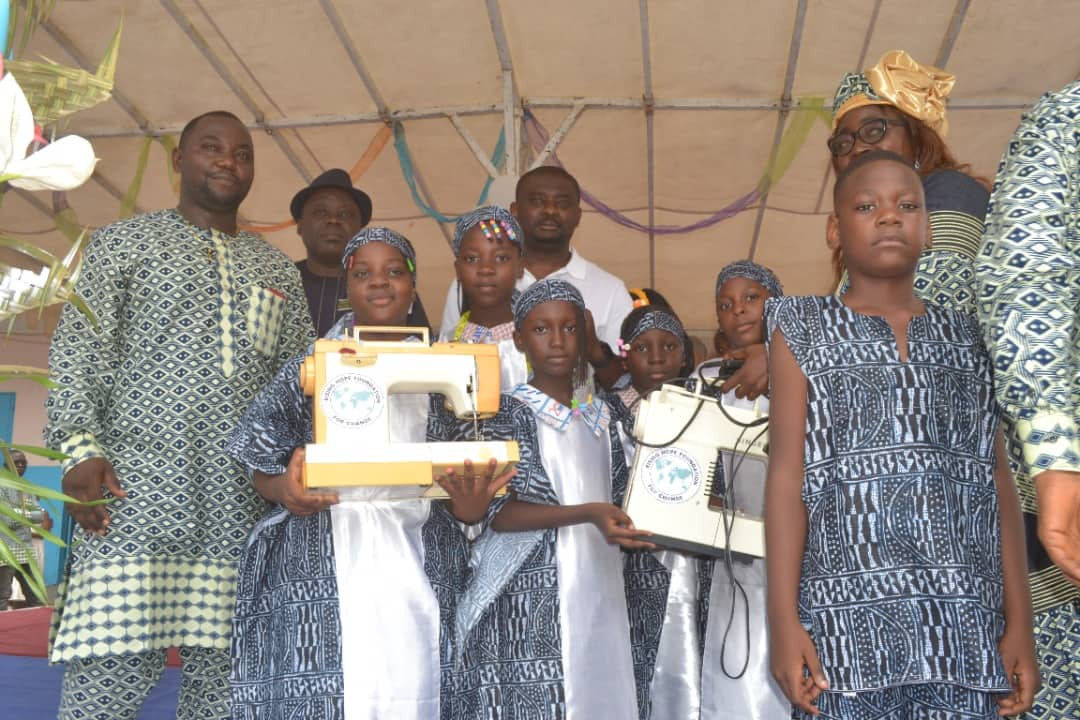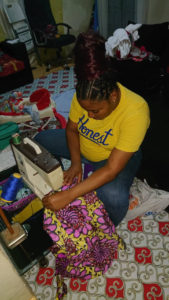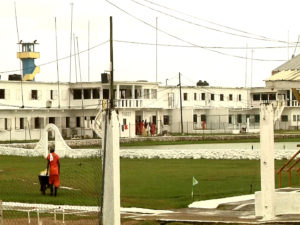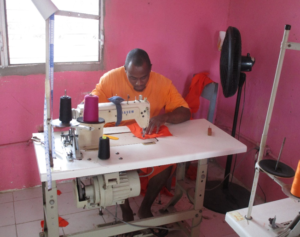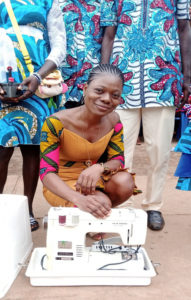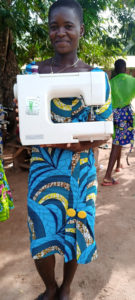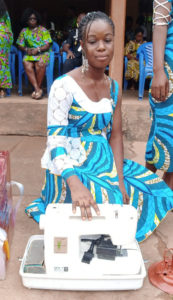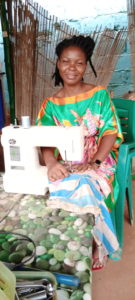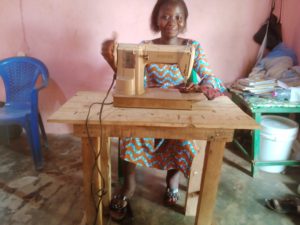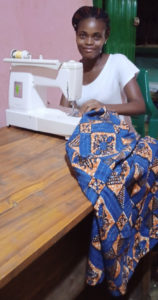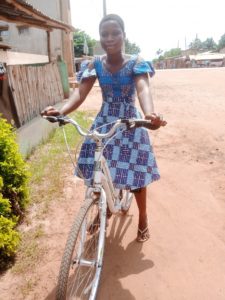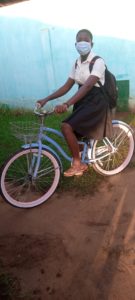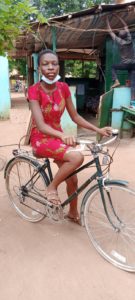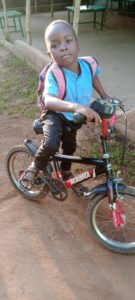By Alan Schultz
Fall 2023 Newsletter
Twenty-five years ago, a young boy infatuated with mountain biking was 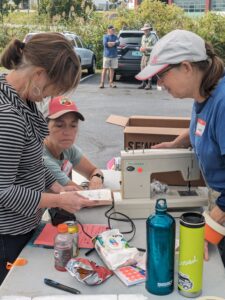 reading Dirt Rag magazine and saw an article about how mountain bikes could help health care workers access remote villages in the developing world, enabling them to help more patients quickly and efficiently. His mother had lived in South Africa as a child and traveled to El Salvador throughout her life. He saw a common ground and showed her the piece. Joanne, the mother in question, sat with the thought for a year and found Pedals for Progress and reached out at just the right time.
reading Dirt Rag magazine and saw an article about how mountain bikes could help health care workers access remote villages in the developing world, enabling them to help more patients quickly and efficiently. His mother had lived in South Africa as a child and traveled to El Salvador throughout her life. He saw a common ground and showed her the piece. Joanne, the mother in question, sat with the thought for a year and found Pedals for Progress and reached out at just the right time.
As fate would have it, Dorsey Hogg, who had served in the Peace Corps in Botswana, had also reached out to Pedals for Progress after hearing about the organization through the Long Island Returned Peace Corps Volunteers. Dorsey wanted to take a shot at running a collection. The problem was the three hundred miles between Vermont and P4P-HQ in New Jersey.
Dave Schweidenback ended up introducing Joanne and Dorsey to each other and the two Vermonters decided to join forces and take on the crazy idea of running a collection in their home state. A bit skeptical, only just finding his stride with his new non-profit, Dave was on board only if the new team would take responsibility for getting the bicycles down to New Jersey.
The two seasoned travelers view time and distance differently than most people and saw this obstacle as a mere speedbump. Through friends, family, significant others, and neighbors they assembled a small team with the common bond of spending time outside of the United States and a desire to continue to help those less fortunate. Some of the first to join included, Matt, who had also served in Botswana, Bob and Paula in Kenya, and Paul in rural Chile; the team tackled the distance between VT and NJ with ease.
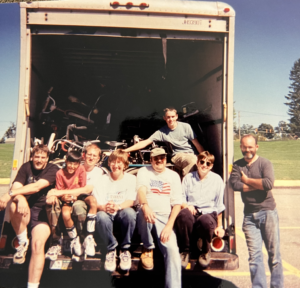
The group came together as the Green Mountain Returned Peace Corps Volunteers (GMRPCV) and held their first collection in 1999 at Burlington High School. The team collected a staggering 138 bikes for their very first collection! With a 26-foot U-Haul rented and ready to go, Matt drove the bicycles to New Jersey with Dorsey following in her car to give him a ride back to Vermont.
Satisfied with their efforts and a job well done, the team decided to do it again! The second year they collected 83 bikes, with Dorsey and Matt making the trip. Year three, after another 114 bikes, Paul took a shot at driving the truck down and then took a train back up to Vermont. Lightning striking three times in a row, they knew they were onto something grand, but the long drives became expensive and tiresome.
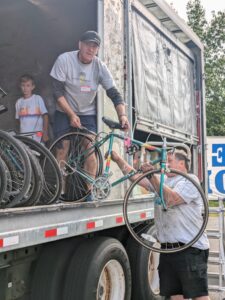 During year four, partnering with the Williston/Essex Rotary Club, the distance between VT and NJ suddenly closed. The Rotary Club had a member who handled shipping for IBM. Diligently working her magic, she found someone at FedEx to agree to ship containers at no cost on a space-available basis. The local FedEx office in Vermont has been stalwart in their support ever since, through numerous changes in branch managers and leadership. Just over twenty years later, it has developed into a tradition that has lifted the burden of logistics, while helping hundreds of people every year along the way.
During year four, partnering with the Williston/Essex Rotary Club, the distance between VT and NJ suddenly closed. The Rotary Club had a member who handled shipping for IBM. Diligently working her magic, she found someone at FedEx to agree to ship containers at no cost on a space-available basis. The local FedEx office in Vermont has been stalwart in their support ever since, through numerous changes in branch managers and leadership. Just over twenty years later, it has developed into a tradition that has lifted the burden of logistics, while helping hundreds of people every year along the way.
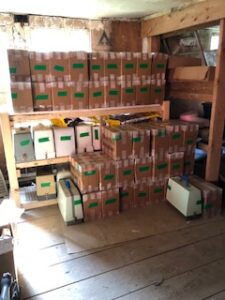
With this key factor in place that offered sustainability to the project, the GMRPCV in Vermont steadily picked up the pace and grew its collection efforts year after year. They have built partnerships with local bike shops participating in bike swaps, held auxiliary collections in smaller areas to maximize their collection efforts, recruited local recycling agencies that provide important financial support, local rotary clubs, student groups, and solid waste groups that all pitch in when they can. The core team has also donated their own time and efforts to fundraising, refurbishing machines, and getting the word out about their collections and our cause through televised news appearances. It goes without saying that the list of volunteers and time spent in 25 years of collections is LONG.
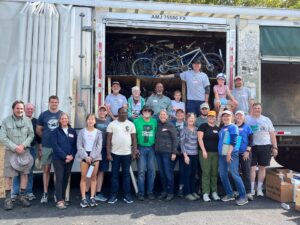
We at Pedals for Progress simply want to say thank you. Thank you to Dorsey, Joanne, and the rest of the team in Vermont that have been helping with our mission for twenty-five years. Knocking it out of the park again, for their 25th Anniversary with P4P, they collected 225 bikes and 127 sewing machines on September 23rd! With this achievement, over the twenty five years of collections, they have collected a staggering 4,900 bikes and 1150 sewing machines that have been shipped around the world. From larger cities like Tirana, Albania, to small villages in rural Togo, these items have drastically changed the lives of thousands of individuals that now have the freedom and mobility to have fair shot at life.
There are hundreds of stories to be told about the team in Vermont. Without fail, there are always a couple interesting stories that come out of each collection. Take for example this small time-capsule that was donated to them this year.
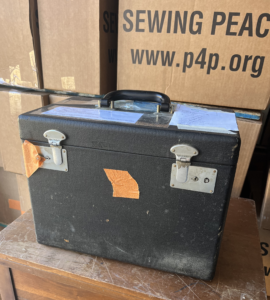 This Singer Featherweight was donated by an unknown individual at this year’s collection. The VT team checks each sewing machine and assesses its condition to help us identify machines that may need to be serviced once they get to New Jersey. Inside this inconspicuous black box there was this note.
This Singer Featherweight was donated by an unknown individual at this year’s collection. The VT team checks each sewing machine and assesses its condition to help us identify machines that may need to be serviced once they get to New Jersey. Inside this inconspicuous black box there was this note.
Thank you for giving my mother’s sewing machine a new home. She served in the Woman’s Army Corp during WWII, returning home to find herself a single parent with child — me. She went on through the GI Bill to receive a master’s degree in library science in Pittsburgh and returned to Ohio to live with my grandfather and grandmother and older sister.
There she oversaw the renewal of the attic into an apartment for us. She worked at the public library and made clothes for me. As time passed and her brother, his wife and three children moved in the house with us and she continued to sew — clothes for me, doll clothes for my cousins as well as costumes for our little play/performances and Halloween! This sewing machine stitched together many wonderful memories and I hope you are able to put it to good use.
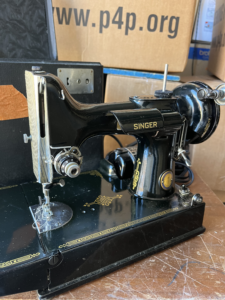 We will be doing exactly that, putting this machine to good use by sending it to a partner program abroad. While this story of a sentimental machine that represents a lifetime of stories is specific to one person, the overall sentiment is still a very real theme today. We’ve reported on a multitude of women in situations like this. Whether to people displaced by war, bearing a child alone, or supporting a house full of family members, we aim to provide machines to create change. Machines like this small Singer can provide a financial bedrock through a business endeavor or simply brighten the day of a child wanting a costume. No matter what is being made, our aim is that the result is one of progress and peace.
We will be doing exactly that, putting this machine to good use by sending it to a partner program abroad. While this story of a sentimental machine that represents a lifetime of stories is specific to one person, the overall sentiment is still a very real theme today. We’ve reported on a multitude of women in situations like this. Whether to people displaced by war, bearing a child alone, or supporting a house full of family members, we aim to provide machines to create change. Machines like this small Singer can provide a financial bedrock through a business endeavor or simply brighten the day of a child wanting a costume. No matter what is being made, our aim is that the result is one of progress and peace.

